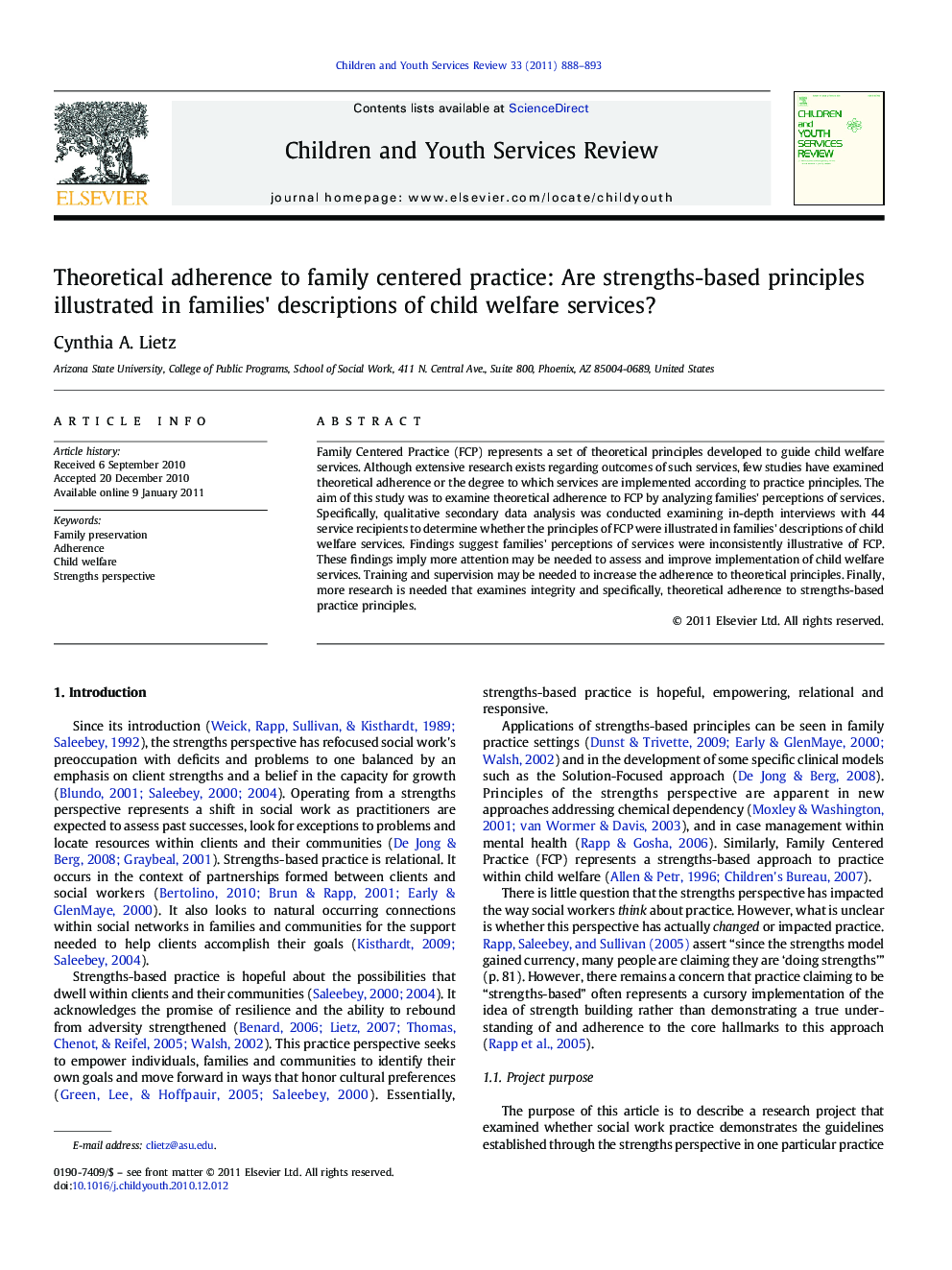| Article ID | Journal | Published Year | Pages | File Type |
|---|---|---|---|---|
| 347333 | Children and Youth Services Review | 2011 | 6 Pages |
Family Centered Practice (FCP) represents a set of theoretical principles developed to guide child welfare services. Although extensive research exists regarding outcomes of such services, few studies have examined theoretical adherence or the degree to which services are implemented according to practice principles. The aim of this study was to examine theoretical adherence to FCP by analyzing families' perceptions of services. Specifically, qualitative secondary data analysis was conducted examining in-depth interviews with 44 service recipients to determine whether the principles of FCP were illustrated in families' descriptions of child welfare services. Findings suggest families' perceptions of services were inconsistently illustrative of FCP. These findings imply more attention may be needed to assess and improve implementation of child welfare services. Training and supervision may be needed to increase the adherence to theoretical principles. Finally, more research is needed that examines integrity and specifically, theoretical adherence to strengths-based practice principles.
Research Highlights► Descriptions of services were analyzed for adherence to Family Centered Practice principles. ► Families' descriptions of services inconsistently demonstrated FCP. ► Findings indicated more attention is needed regarding theoretical adherence to FCP principles.
